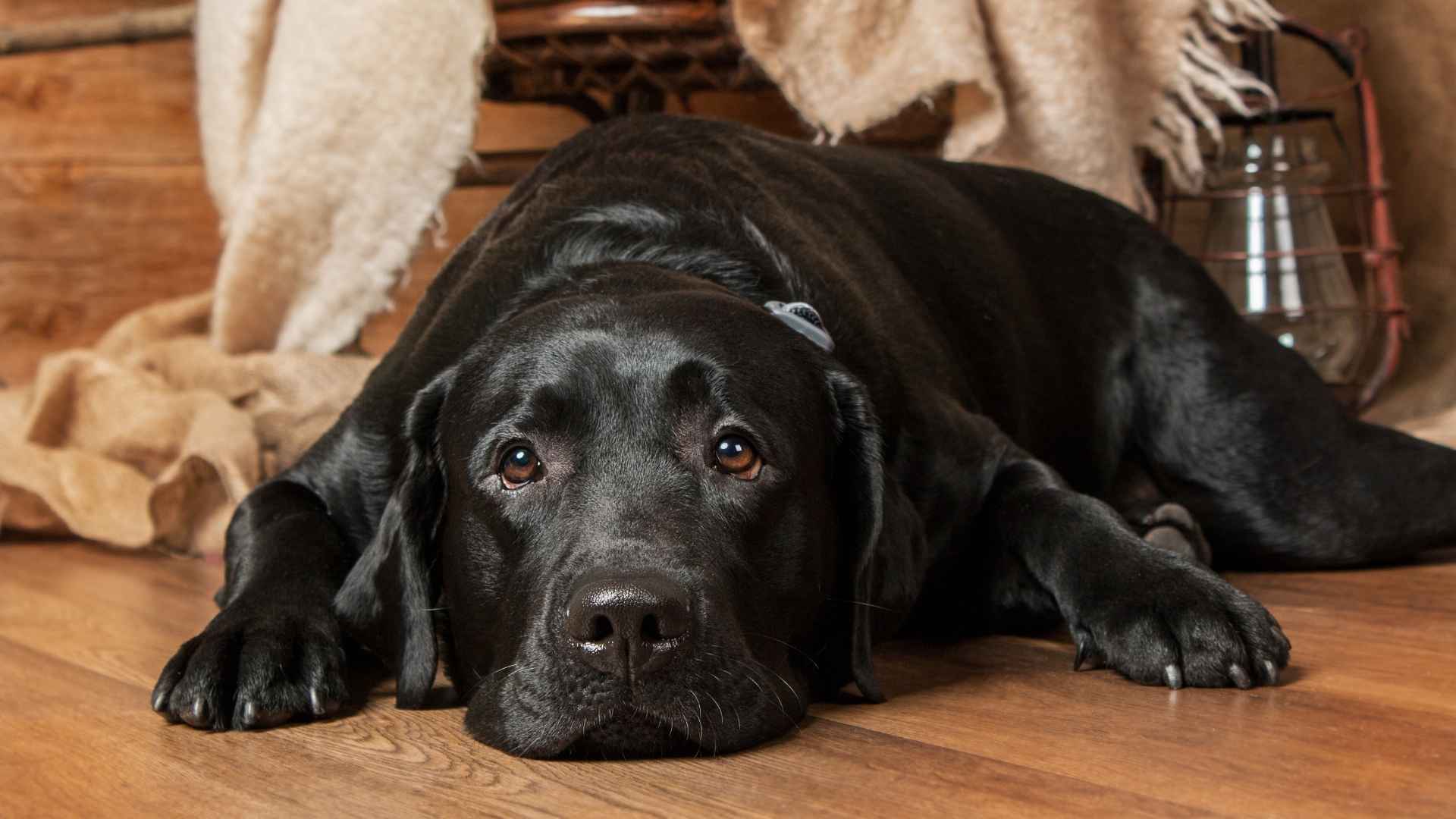In the wonderful world of dogs, some breeds carry a little more worry in their hearts than others. While all pups can experience anxiety from time to time, certain dog breeds are naturally more prone to it due to their genetics, personality traits, and even the jobs they were originally bred to do.
Whether it’s separation anxiety, fear-based anxiety, or general nervousness around strangers, anxious behavior can show up in different ways. Breeds that were once protectors or herders often stay on high alert, while those with strong emotional bonds to their humans may struggle when left alone.
If you share your home with one of these sensitive souls, understanding their specific needs can go a long way in helping them feel safe, secure, and loved. In this post, we’ll explore dog breeds prone to anxiety, how you can prevent anxiety-driven behavior, and support your furry friend with patience, compassion, and plenty of tail wags.
Dog Breeds Prone To Anxiety
1. Border Collie
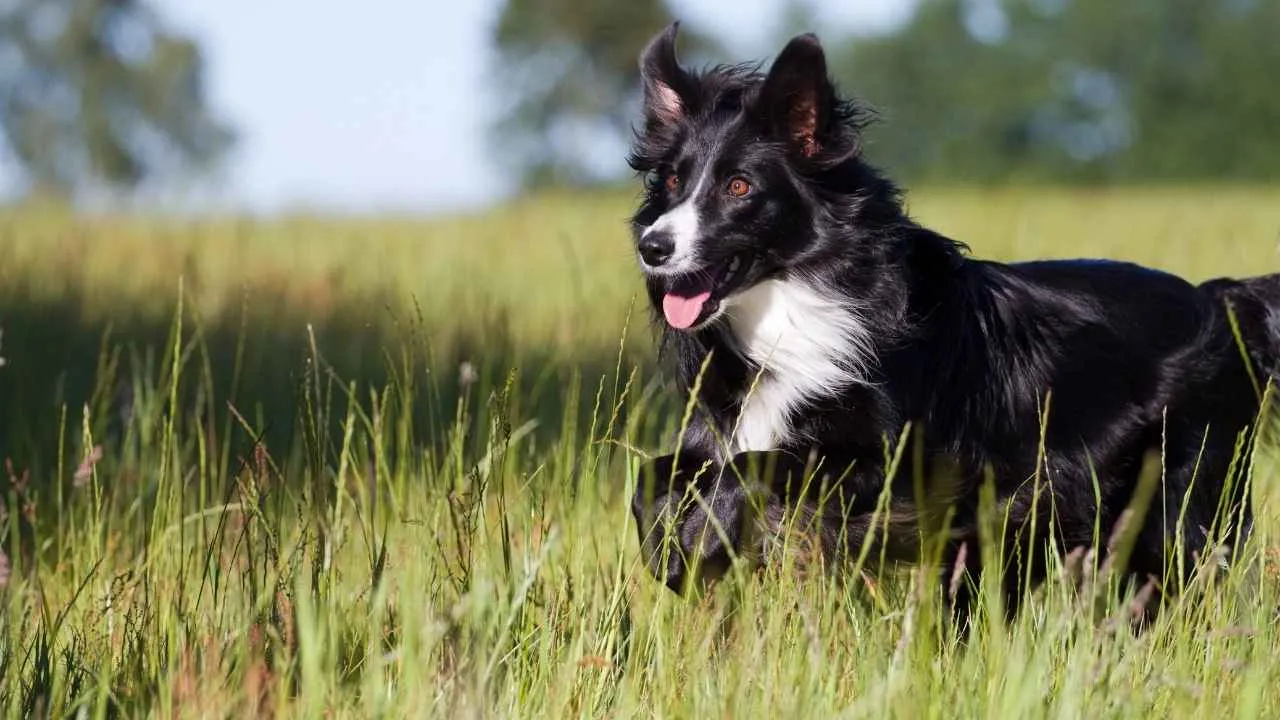
Border Collies hail from the England-Scotland border, bred to herd sheep with smarts and speed. These intelligent dogs constantly rank the charts; brainy, agile, and full of energy, but that combo means they can get severe anxiety if their needs aren’t met.
Since these are herding dogs, Collies need serious daily exercise—think at least 1-2 hours of running or sprinting—to burn off their boundless energy. Without it, expect some mischief like chewing, barking, or pacing.
Border Collies’ sharp senses make them extra aware of changes around them. Loud noises, sudden movements, or chaotic environments can easily rattle their nerves.
That strong herding instinct means they want to keep everything in order. When they can’t, they might obsessively chase cars or try to herd the family, including the kids!
Border Collies thrive on mental challenges—puzzles, tricks, training—you name it. Without constant brain workouts, they can develop anxious habits like compulsive barking or pacing, states WebMD.
Key things to keep in mind:
Provide plenty of physical exercise and mental stimulation every day.
Shield them from loud noises or sudden changes that could spike their stress.
Give them a “job” or task to satisfy their herding drive.
These clever pups aren’t built for apartment life—they need space to run and play. With the right care, they’ll be your smartest, most loyal sidekick (and a little bit of a playful troublemaker, too!).
Border Collies are generally healthy and hardy dogs, thanks to their active lifestyle. However, they are genetically predisposed to Hip dysplasia, Collie Eye Anomaly (a breed-specific condition affecting the back of the eye), and epilepsy. Regular vet check-ups help catch and manage these issues early, keeping your smart pup happy and healthy.
2. German Shepherd

German Shepherds are the ultimate all-rounders—bred in 19th-century Germany for herding and guarding sheep, these smart, loyal pups quickly became stars in police work, in the military, and as guard dogs. But beneath their confident, fearless exterior lies a sensitive soul that can get anxious if their needs aren’t met.
Their protective nature means they’re always on alert, ready to guard their family and territory. Sometimes, this can turn into hypervigilance, making them reactive to strangers or unfamiliar situations.
German Shepherds form deep bonds with their human family, which is adorable until it turns into separation anxiety. Left alone too long, they might chew up your favorite shoes or throw a barking concert to get your attention.
Factors that may contribute to anxiety-related behaviors:
These dogs thrive when they have a purpose—whether it’s herding, training, or a fun job to keep their brilliant minds busy. Without that, stress and anxious behaviors can sneak in.
Different breeding lines can influence their temperament—some are more prone to nervousness if temperament isn’t carefully considered.
They’re incredibly smart and sensitive, picking up on every little thing, especially when you’re not around.
Health issues like hip dysplasia can add to their stress, so keep an eye on their comfort.
With plenty of love, daily mental and physical challenges, and lots of quality time together, German Shepherds will shine as the loyal, brave companions they’re meant to be. Just remember—they’re not just tough pups; they need your heart as much as your hand!
3. Labrador Retriever

Labrador Retrievers are pure sunshine wrapped in fur—goofy, friendly, and always ready for fun. But don’t let that happy-go-lucky vibe fool you; Labs are sensitive souls who crave your company. When left alone too long, they can get severe separation anxiety and show it through chewing, barking, or other mischief.
Labradors were bred to be hunting dogs, so these energetic pups need lots of daily exercise and mental challenges to keep their tails wagging and minds busy. Whether it’s fetch, swimming, or a good hike, this breed thrives on activity—especially if you’re part of the fun, states Britannica.
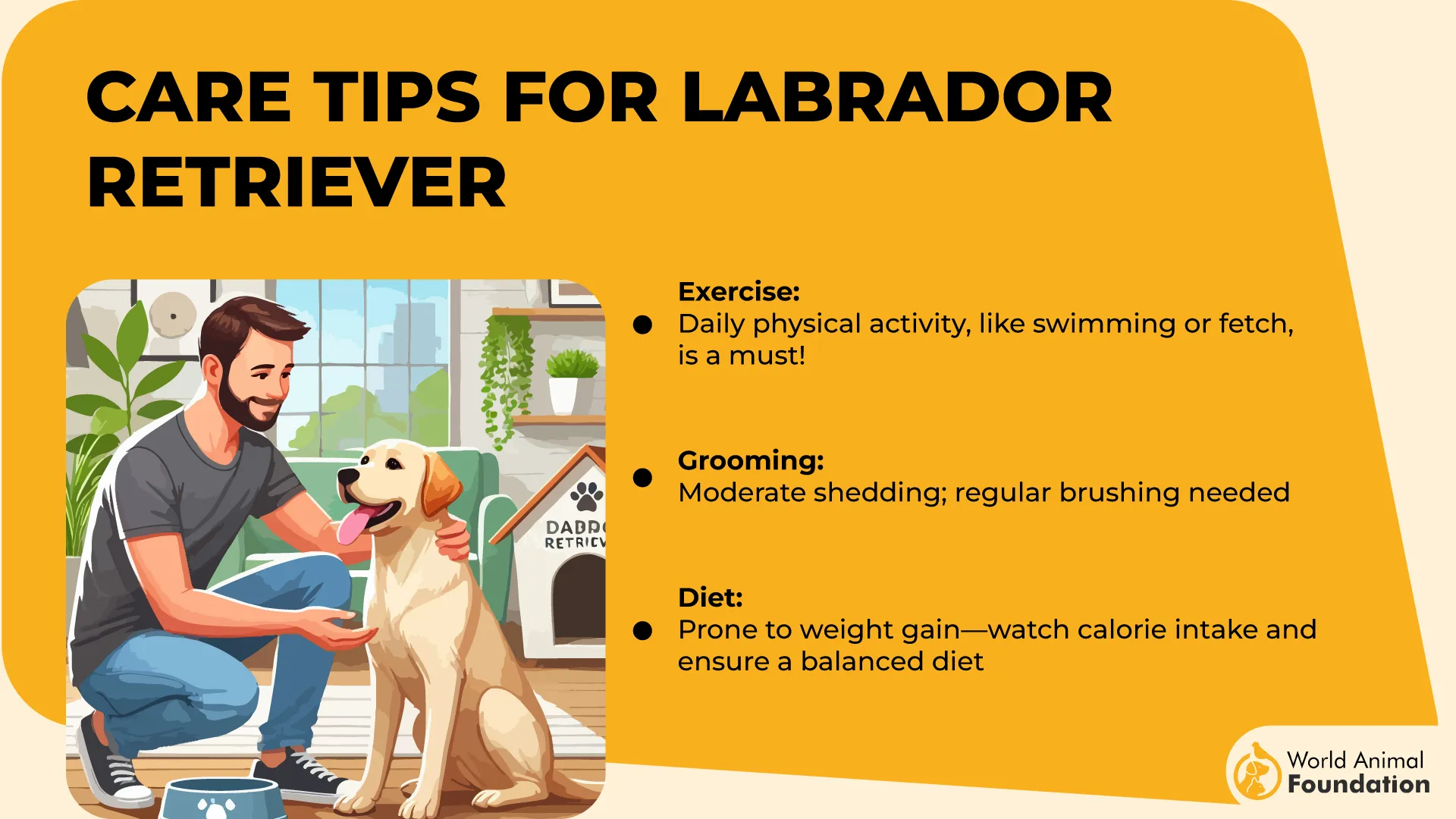
Factors that contribute to a dog’s anxiety:
Labs are eager to please and love having a job, so boredom is their nemesis. Keeping them busy with training, dog sports, or therapy work helps keep anxiety at bay.
They’re big fans of routine, so sudden changes or disruptions can stress them out.
They form strong bonds with family members they can develop anxiety if they feel disconnected or underappreciated.
Originally from Newfoundland and polished in the UK, Labs started as fishermen’s helpers, retrieving nets and fish. Today, they’re versatile stars—as hunting buddies, service dogs, and loving human companions—bringing endless love and loyalty in return for your attention and care.
4. Bichon Frise
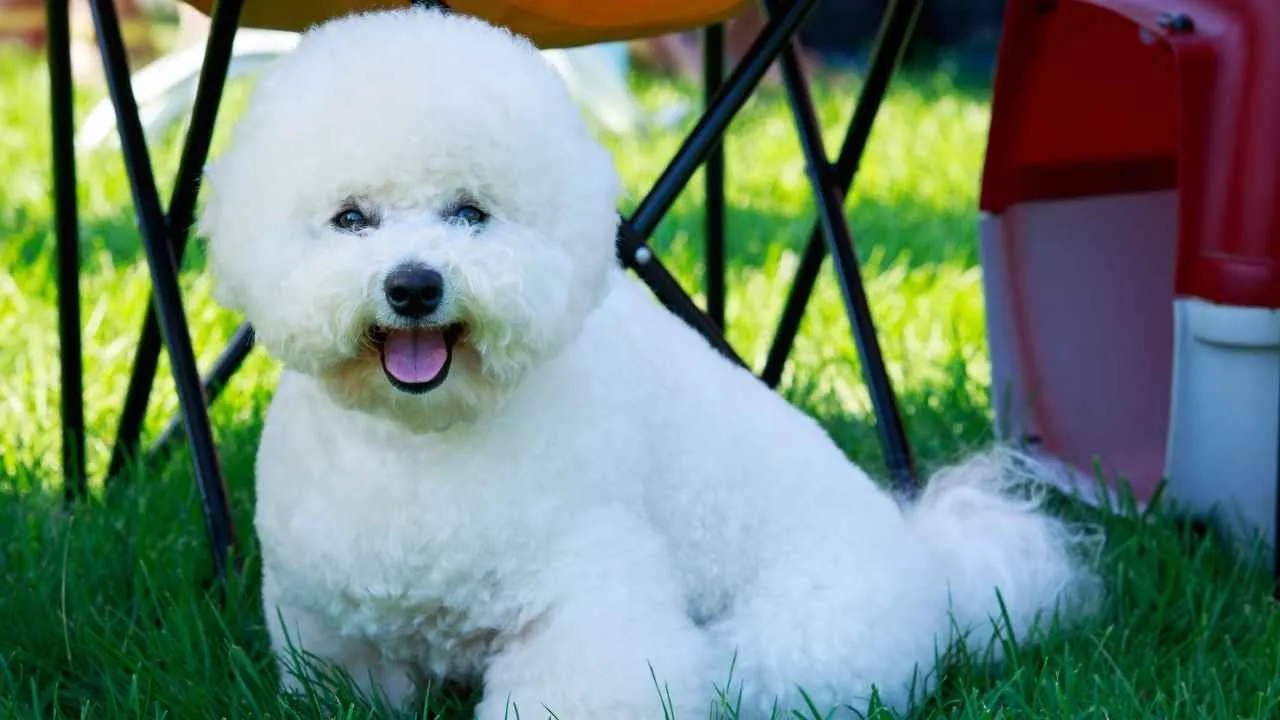
Bichon Frisés are fluffy little charmers with hearts full of love and personalities twice their size. These pint-sized pups were bred to be devoted companions, so they absolutely thrive on human attention and being part of the family action. Leave them alone for too long, and they can quickly turn into tiny drama queens—barking, whining, or even nibbling on furniture just to get noticed.
Don’t let their dainty looks fool you—Bichons are lively and full of pep. While they don’t need intense exercise, regular playtime and mental engagement are a must to keep their energy balanced and spirits high. Think fun games, short training sessions, and plenty of cozy snuggles.
Their cheerful disposition and eagerness to please make them a wonderful fit for families, including those with kids or other pets, especially if someone is around most of the day to keep them company.
Because these fluffy social butterflies love being in the mix, early socialization and consistent companionship are essential for keeping anxiety at bay. Give them the right blend of love, structure, and attention, and these sweet fluffballs will happily rule your home with endless cuddles and wagging tails.
Thrive on human interaction and don’t like being left alone for long, states Petplan
Need regular, gentle play and mental stimulation, not intense workouts
Early socialization helps prevent anxiety and promotes confidence
Perfect for families who can provide lots of companionship
Cheerful, adaptable, and great with kids and other pets
With the right balance, your Bichon will be the happiest, most loving little fluffball you could ask for!
5. Australian Shepherd
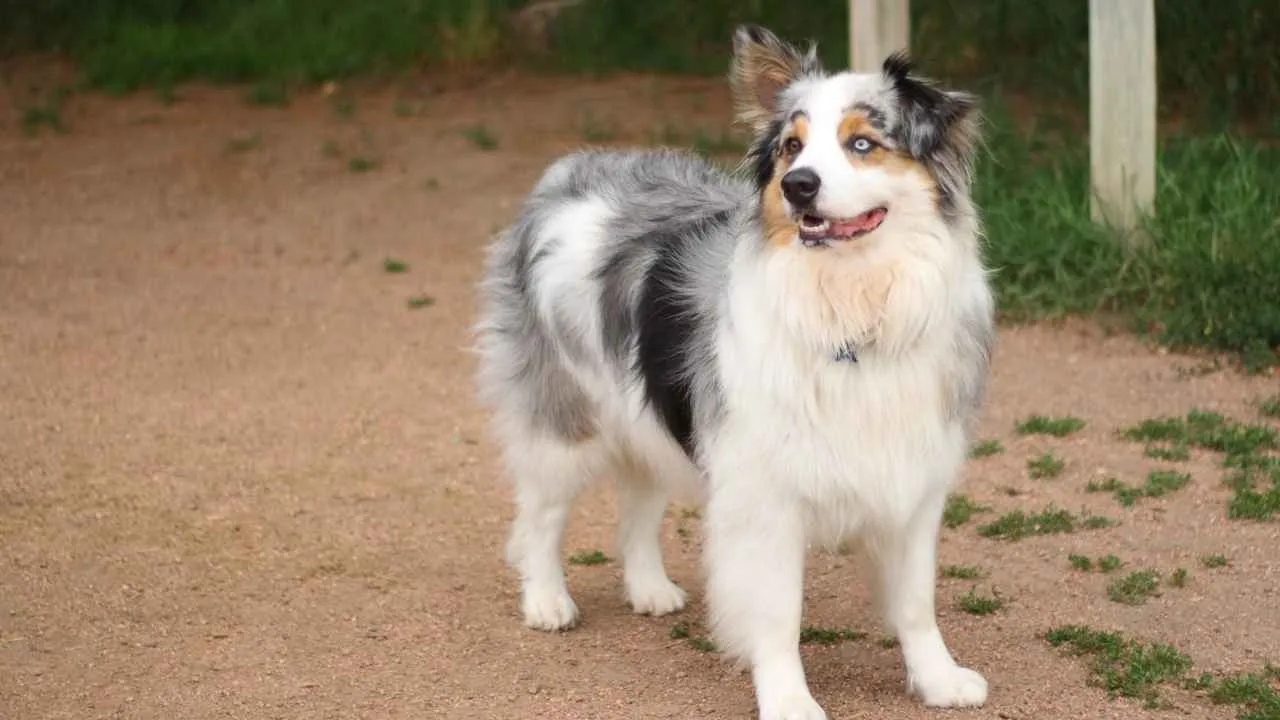
Australian Shepherds are the ultimate overachievers of the dog world—bright, bouncy, and born to work. Originally bred to herd livestock, these dogs aren’t just energetic—they’re wired to have a job. Without something productive to do, their busy brains and boundless energy can spiral into anxiety and all kinds of mischief.
Australian Shepherds are super attached to their humans and crave constant interaction. Leave them alone for too long or without physical and mental stimulation, and they may exhibit destructive behavior, barking, chewing, or turning your flower bed into their personal excavation site. Their herding instincts can also kick in at home, which means nipping at heels or chasing after moving objects (yes, even your toddler).
Here’s what helps these brainy furballs stay balanced:
Daily jobs like agility training, puzzle games, or advanced obedience keep their minds satisfied.
Adequate exercise—we’re talking more than a stroll around the block.
A calm environment, as they’re easily overwhelmed by loud noises or chaos.
Give them purpose, structure, and lots of love, and Australian Shepherds will reward you with endless loyalty, clever antics, and unmatched enthusiasm.
6. Jack Russell Terrier
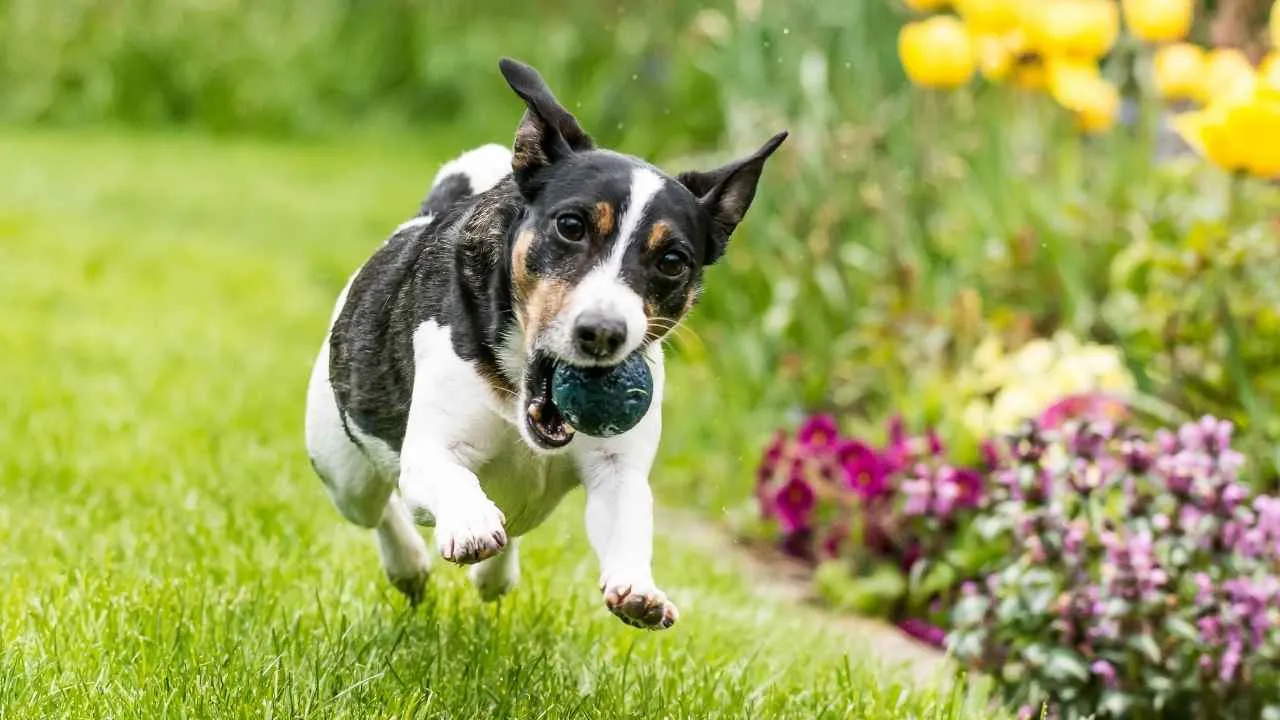
Jack Russell Terriers are tiny dynamos packed with courage, sass, and non-stop energy. Originally bred for fox hunting, these spirited pups have a natural drive to chase, dig, and explore just about everything—and they expect you to keep up! With brains as quick as their feet, boredom hits them hard, often showing up as barking, chewing, or wild zoomies through your house.
Their confident, take-charge attitude is classic terrier, but don’t be fooled—these tough cookies can still get anxious, especially in unfamiliar situations. Their alertness means they’re always on high alert, and that sensitivity can make them react to things that aren’t actually threats.
Jack Russells need plenty of engagement and affection, and they don’t appreciate being left out of the action. When left alone too long, their big feelings can turn into classic signs of separation stress.
To help your Jack Russell feel calm and confident:
Plan lots of active play, like fetch, agility drills, or tug-of-war.
Give their brains a workout with puzzles and interactive toys.
Stick to a routine so they know what to expect.
They’re bold, brilliant, and full of personality—just be ready for the ride!
7. German Shorthaired Pointer
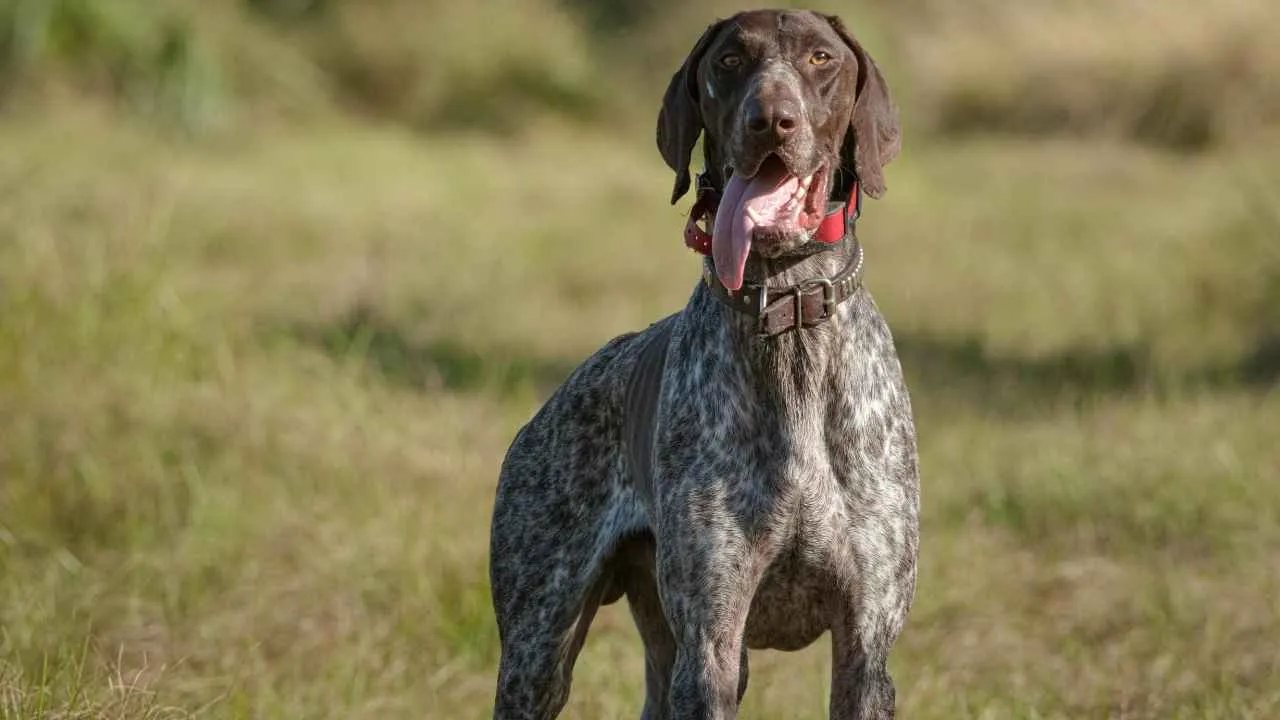
German Shorthaired Pointers (GSPs) are powerhouse pups bred in 19th-century Germany to be all-around hunting champions. Athletic, smart, and bursting with energy, they shine both in the field and as loyal family pals. But all that energy and smarts can come with a side of anxiety if their needs aren’t met.
These dogs need serious exercise—think running, hunting, and plenty of play—to keep their minds and bodies happy. Without enough action, GSPs get restless and might channel that nervous energy into destructive chewing, digging, or excessive barking.
GSPs’ sharp senses make them super aware of everything around them. Loud noises, sudden movements, or new places can easily stress them out, thanks to their sensitivity.
That famous prey drive means they’re always on alert for fast-moving critters. When they can’t chase a squirrel or cat, frustration builds, sometimes showing up as pacing, whining, or barking.
Some GSPs, especially those with racing or hunting backgrounds, might not have had much socialization from a young age. This can make new experiences and people pretty overwhelming, adding to their anxiety.
To keep your GSP calm and content:
Load up on exercise and playtime every day.
Introduce new sights and sounds gradually to build confidence.
Offer plenty of mental challenges to keep that clever brain busy.
With the right care, these energetic adventurers make wonderful, loving companions.
Conclusion
In the end, understanding that certain breeds—from loyal companion dogs like Cavalier King Charles Spaniels and Toy Poodles to larger, sensitive pups like Bernese Mountain Dogs—may be more prone to anxiety disorders is key for responsible pet owners.
Whether you’re raising Miniature Schnauzers, Cocker Spaniels, or other dogs, being aware of potential anxiety triggers and providing plenty of physical stimulation, consistent routines, and positive training methods can make a world of difference.
Factors like selective breeding, lifestyle mismatch, or lack of stimulation can exacerbate anxiety, especially in an active dog without an outlet. Ultimately, dog owners who tune into their pup’s emotional needs are better equipped to help them feel secure, confident, and loved.


